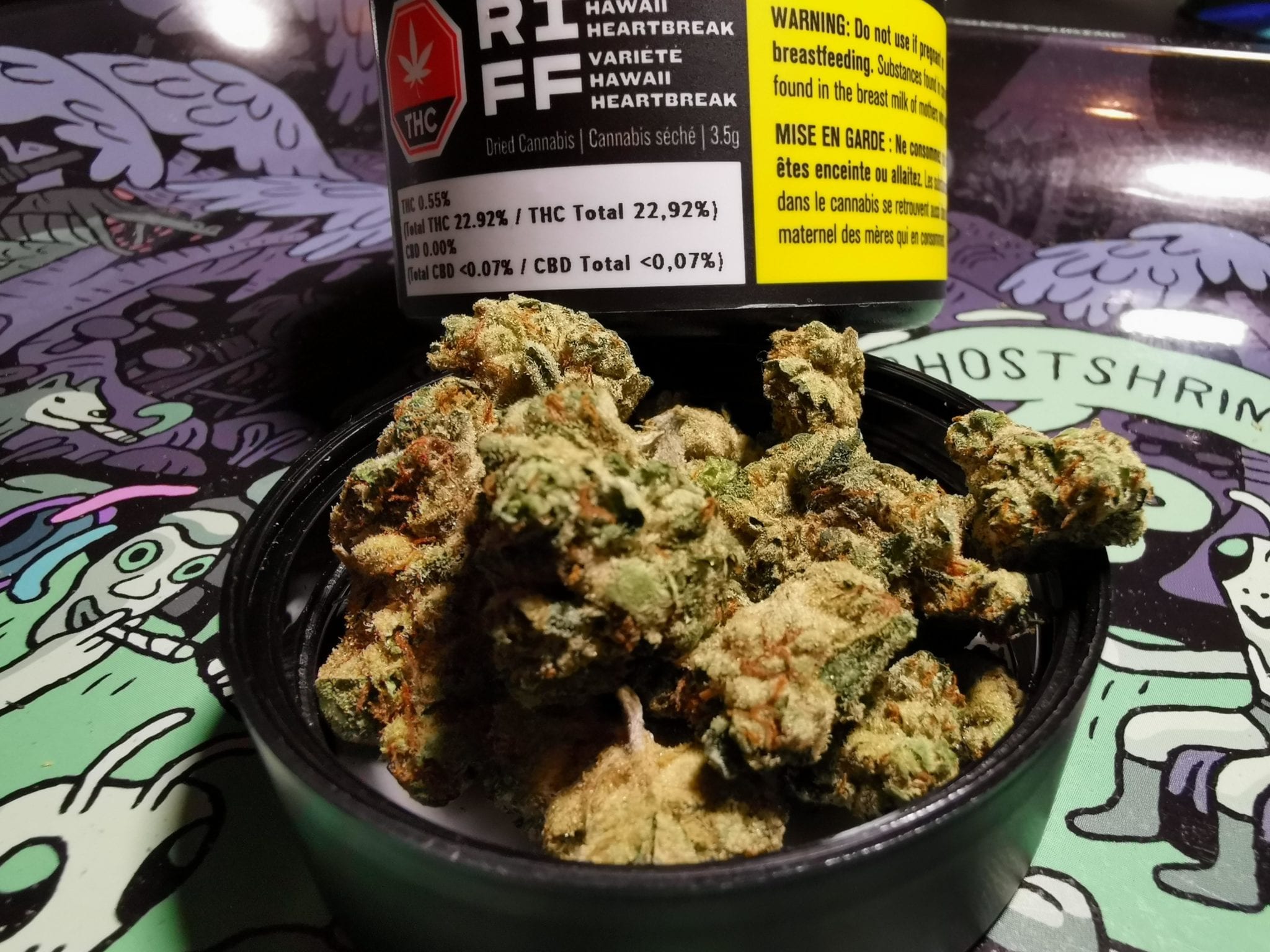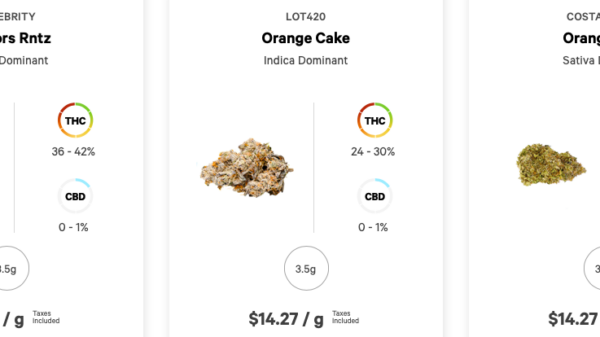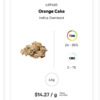As the first company trying to make a business out of grading the quality of Canadian cannabis comes to market, it’s getting criticized for being a cash grab with problematic membership on its advisory committees.
After a year of efforts spent developing a “gold standard” for legal weed, Cannabis Quality Assurance said its program is ready and will host a Zoom call with management, the drafting committee and tasters on May 4.
The announcement was followed by a wash of scathing tweets that shamed the company for attempting to charge producers for a meaningless stamp of approval, and drawing attention to certain members of the CQA advisory team. Among them are A&L Laboratories CEO Greg Patterson and Ontario Cannabis Store senior category manager Peter Shearer.
But CQA — not to be confused with the Canadian Quilters Association — president and CEO Jean Phillippe Ewart defends his company’s integrity, saying that the team operated independently from the start by filing for certification marks under the Canadian Trademark Act.
The trademark status not only protects CQA from being copied, he tells Mugglehead, but requires the agency to not involve itself with the industry it judges the quality of.
Ewart, a lawyer by trade, says there are no conflicts of interest related to CQA’s advisory committees. Members like Patterson and Shearer share their expertise pro bono, he explains.
The OCS confirmed that Shearer revealed his unpaid work with CQA when he joined the provincial cannabis company, and further stated that the OCS supports his efforts in developing industry standards.
The program will rely on independent and anonymous lab testing to analyze quantitative criteria and a skilled panel of 50 tasters to provide qualitative sensory analytics, Ewart says. The agency aims to provide producers big and small with the opportunity to shine on a global scale, he adds, and enter new markets with products that meet and exceed Health Canada’s standards.
Cash grab or marketing tool?
Kyp Rowe, director of Shelter Craft Collective, called CQA’s program a “shameless cash grab” that will only add another barrier to entry for smaller players.
So……how much for each sample to be evaluated to get this little gold star? What a shameless cash grab…
— Kyp Rowe (@KypRowe) April 7, 2021
North40 Cannabis founder Gord Nichol, who’s built a micro-cultivation business known for quality, called the program’s directors “parasites.” He claims they are only trying to enrich themselves off the back of growers that are already struggling.
In Canada’s tightly regulated cannabis market, producers already have to traverse a gauntlet of testing and quality procedures while paying steep licensing fees.
“The fact they are targeting micro cultivators makes my blood boil,” Nichol said in an email. “I wouldn’t put their ‘gold stamp of approval’ on anything I produced even if it was free.”
Read more: Saskatchewan micro-producer North 40 gets local nod for job creation
Without revealing exact figures, Ewart says initial program fees will be based on revenue of a producer, which will be broken down into five categories. The CQA will also charge a “small” renewal fee.
“I can tell you micro-producers will be charged less than 1 per cent of what the big boys are paying,” he continues.
The CQA expects roughly 20 per cent of producers that apply for the program will get the gold seal of quality for their submitted product.
Operators that don’t pass will remain anonymous, Ewart says, and growers that get products approved will pay a “small percentage” of their sales on the specific lot number.
“We thought that was a fair approach to the main revenue stream,” Ewart said. “It’s a marketing cost to your wholesale price and we hope there’ll be a bump in their sales.”
Highly skeptical, based on the PR and those invovled.
First report released should be a comprehensive, double blind analysis of how all these expert panelists fair against the group. Raw and statistical data should be presented clearly, as well as a detailed CVs of panelists… https://t.co/00Vp13HVXs
— Tom Ulanowski (@tom_ulanowski) April 7, 2021
Questions surrounding CQA team integrity
Activists and industry insiders question the integrity of the CQA program with some of the selections on its team.
Cannabis activist Eamon Cyr criticized CQA in a tweet for adding industry consultant George Robinson to its development committee.
While the agency calls him a “recognized specialist in the cannabis sector,” Cyr noted that Robinson resigned last year as CEO of RavenQuest BioMed just before the producer filed for bankruptcy.
In a May 2020 statement, the company said that Robinson was withholding all records from RavenQuest in an effort to avoid a lawsuit regarding a pay dispute.
Conflict of interest issues within the CQA team were also raised by High North Laboratories founder John Slaughter in a tweet.
The industry veteran questioned how A&L Laboratories Inc. CEO Greg Patterson could perform his duties impartially on CQA’s advisory committee.
Slaughter also brought up concerns on how the agency selected Ontario Cannabis Store senior category manager Peter Shearer to join its development team.
He questioned how the OCS is okay with Shearer holding his position at CQA and how either business can operate impartially moving forward.
Mugglehead raised the same questions with the Crown corporation.
The OCS responded that the CQA isn’t paying Shearer for his work, and the provincial agency was aware of his unpaid involvement prior to hiring him last year.
“We support his continued engagement with others in the sector in developing standards as we work to grow the legal cannabis sector,” OCS communications director Daffyd Roderick said in an email.
According to both the CQA and OCS, Shearer is a recognized authority for grading of weed products and his Shearer Scale for Cannabis Quality is widely used in the industry.
His 15 years of industry experience are why both agencies say they recruited his services.
CQA doubles down on due diligence
Ewart says he realizes that from afar CQA may look like a large corporate entity working behind the scenes with connections to some of the largest LPs.
But “responding to every negative tweet or troll simply only gives them a platform to continue to badger you with half truths and raise unfounded speculation,” he adds.
Founder of The Supreme Cannabis Company and CQA beta tester John Fowler defended the program in Rowe’s Twitter thread.
“They have a decent plan, and worked really hard to keep the sampling as blind/objective as possible,” he wrote. “I think they mean well and are putting the work in.”
Ewart elabourates on how the CQA tries to ensure objectivity.
All products are de-branded with labels removed before they are shipped out to testing labs and two geographical distribution centres for tasters to collect.
The CQA will conduct a number of initial tests, including checking humidity levels.
Testers will remain anonymous to the public, industry and to each other.
According to Ewart, an expert tasting panel will test sensory elements including aroma, visuals, tactile feel, flavour and function. Each sensory element has several subsections, where measurements are recorded. In total, there are 29 sensory dimensions, in addition to empirical measures taken at the anonymous labs.
The CQA also teamed up with the National Institute for Cannabis Health & Education to provide third-party support the public education and wellness component of the program.
The non-profit works with the academic community, government, industry, medical professionals and other stakeholders to provide fact-based public dialogue on the positive and negative health aspects of cannabis.
Ewart says the CQA are engineering an app, website and electronic boards for cannabis retailers to provide consumers with all the quantitative and qualitative information for each product tested.
Perception problems
Mugglehead reached out to Kyp Rowe and other critics of the program. Most declined to comment or didn’t get back by press time.
Despite their criticism, there’s at least one well-respected member on the board.
Brad Martin, better known as the prolific and data-focused weed reviewer pancakenap, is the CQA’s program director.
Nicholas Nedin, president of industry consultancy Xtract Biotech Inc., says the CQA may have created a perception problem due to the name of the organization.
Nedin, who has a background in alcohol quality assurance, says CQA creates an immediate association with the Vintners Quality Alliance. He says the VQA program doesn’t deliver any value to wine consumers.
“I would be reluctant to enter products in any kind of system that would harken to the rubber stamp, pay-for-play reputation of the VQA,” he wrote in an email.
For Nedin, the CQA team seems to have good intentions in creating a system to denote quality in the cannabis industry. But in order to gain trust, he says the agency must continue to provide an “incredible amount of transparency” about the methodology of both its quantitative and qualitative tests for the gold stamp of approval.
“As a whole I believe that reviewing cannabis products is being done really well already by a number of individuals, and as our industry matures the mechanisms for review will in turn mature,” he said.
“If the CQA is a step in this maturation process then I hope there is capacity being created internally to evolve with this dynamic industry.”
Top image via Reddit user CHIEFxNUGZ
jared@mugglehead.com



















